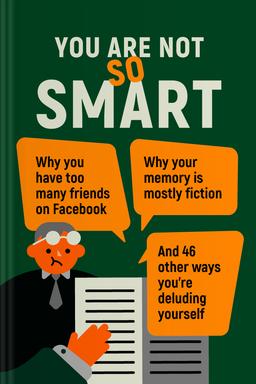You think you're fair. You believe you judge people based on merit, not stereotypes. But then you catch yourself — surprised when someone defies your expectations, or realizing you made an assumption you can't quite explain.
Books on unconscious bias reveal what your brain does without permission: the snap judgments, the invisible filters, the patterns you inherited without choosing them. These seven books won't just tell you that bias exists. They'll show you exactly how it works in your decisions, your relationships, and your daily life.
Books on unconscious bias that expose hidden patterns
Books on unconscious bias do something uncomfortable — they prove you're not as objective as you think.
Take Mahzarin R. Banaji and Anthony G. Greenwald's 'Blindspot.' They created the Implicit Association Test, which measures biases you don't even know you have. Millions of people have taken it and discovered they hold preferences that contradict their conscious beliefs. You might genuinely support equality while your brain still makes automatic associations based on race, gender, or age.
Or look at David McRaney's 'You Are Not So Smart.' It's a fun, slightly sarcastic journey inside our heads. He shows that the brain is not a wise magician, but rather a stand-up comedian, constantly inventing shortcuts to save energy. And it is these "brain hacks" that become prejudices.
McRaney explains why we are sure that we remember events accurately, although the brain rewrites them like an editor on a deadline. Or why we fall in love with a first impression, even if it is wrong — the effect of attachment in action.
His examples are very everyday. Do you buy something "on sale" because it seems profitable? Hello, the lure effect. Are you sure that others think more of you than they really are? Oh, it's the spotlight effect.
Lauren Fleshman's 'Good for a Girl' addresses bias in sports, highlighting how female athletes face different standards from the outset. She wasn't just fighting opponents. She was fighting assumptions about what women's bodies should do, what pain they should tolerate, and what success should look like for them. Her story makes bias personal and specific, not just an abstract concept.
Best books on unconscious bias for making better decisions
The best books on unconscious bias don't stop at awareness. They give you tools to make fairer choices.
Jessica Nordell's 'The End of Bias' examines interventions that actually work. Blind auditions increased the number of women in orchestras by 50%. Simple changes in how you structure decisions can significantly reduce bias. You can't eliminate bias entirely, but you can design systems that limit its influence.
Daniel Kahneman's 'Noise' adds another layer. 'Noise' reveals that our decisions are not only influenced by bias but also by noise — random fluctuations in judgments. Even experts doing the same job make different decisions because of process, mood, or context instability. Kahneman divides the problem into two parts: systematic errors (biases) and nonrandom but inconsistent errors (noise). For example, two doctors may evaluate the same case differently — not because of bias, but because of random factors.
Hans Rosling's 'Factfulness' tackles how bias distorts your view of the entire world. You probably think things are worse than they are. That's the negativity instinct — your brain remembers bad news and ignores gradual improvements.
Rosling uses data to challenge ten instincts that make you see the world incorrectly. When you check your assumptions against actual numbers, your perspective shifts completely.
These books on bias share one idea: your brain is constantly lying to you, but you can learn to question it. Start with one book that matches where you see bias affecting you most — workplace decisions, personal relationships, or how you consume news.




